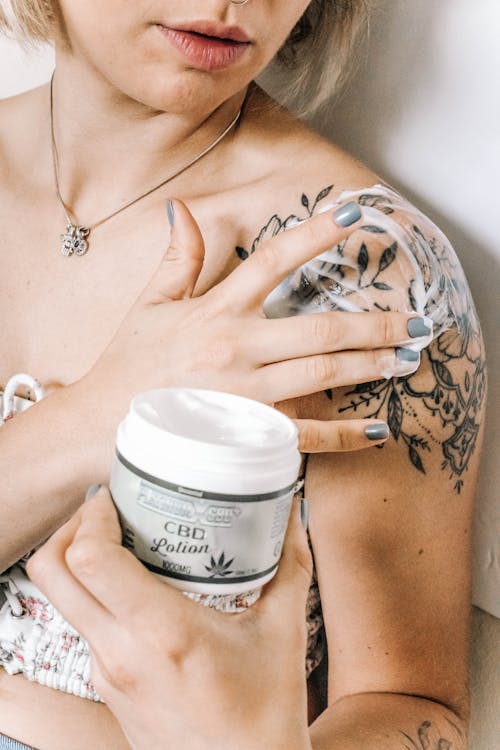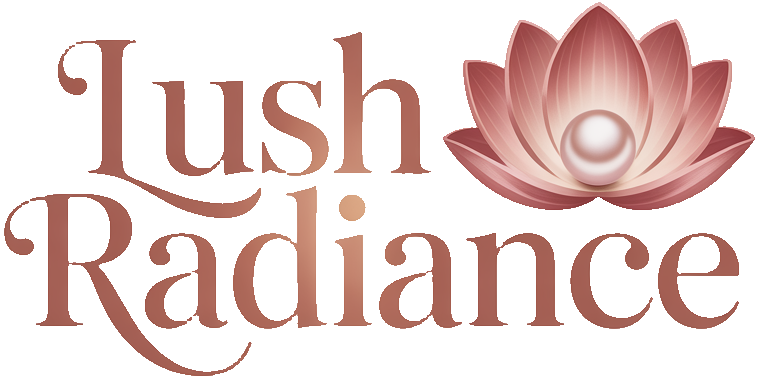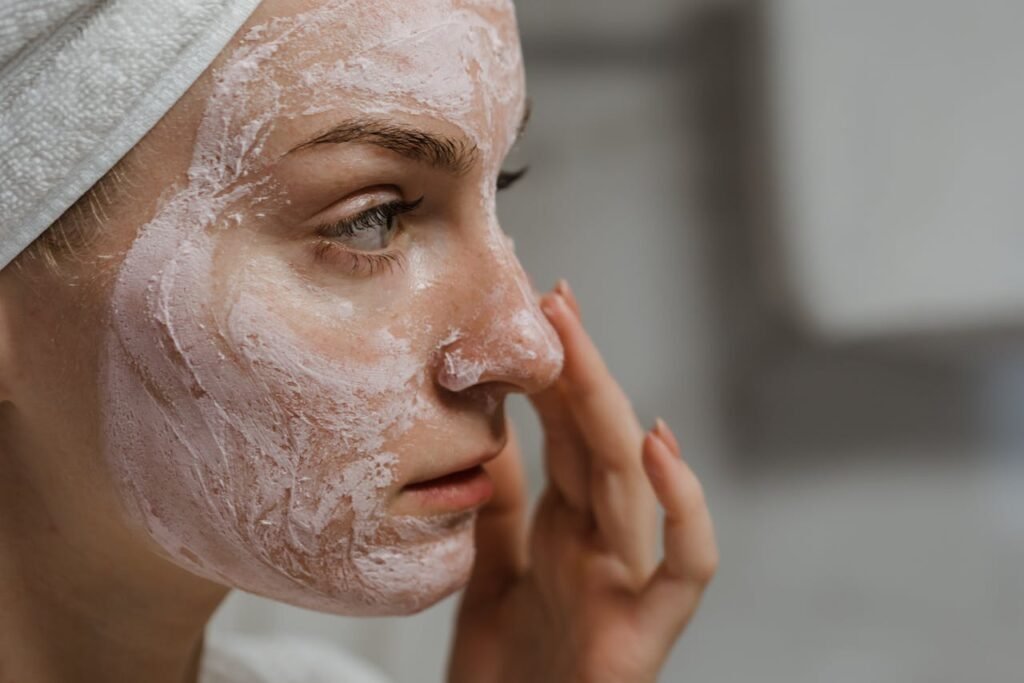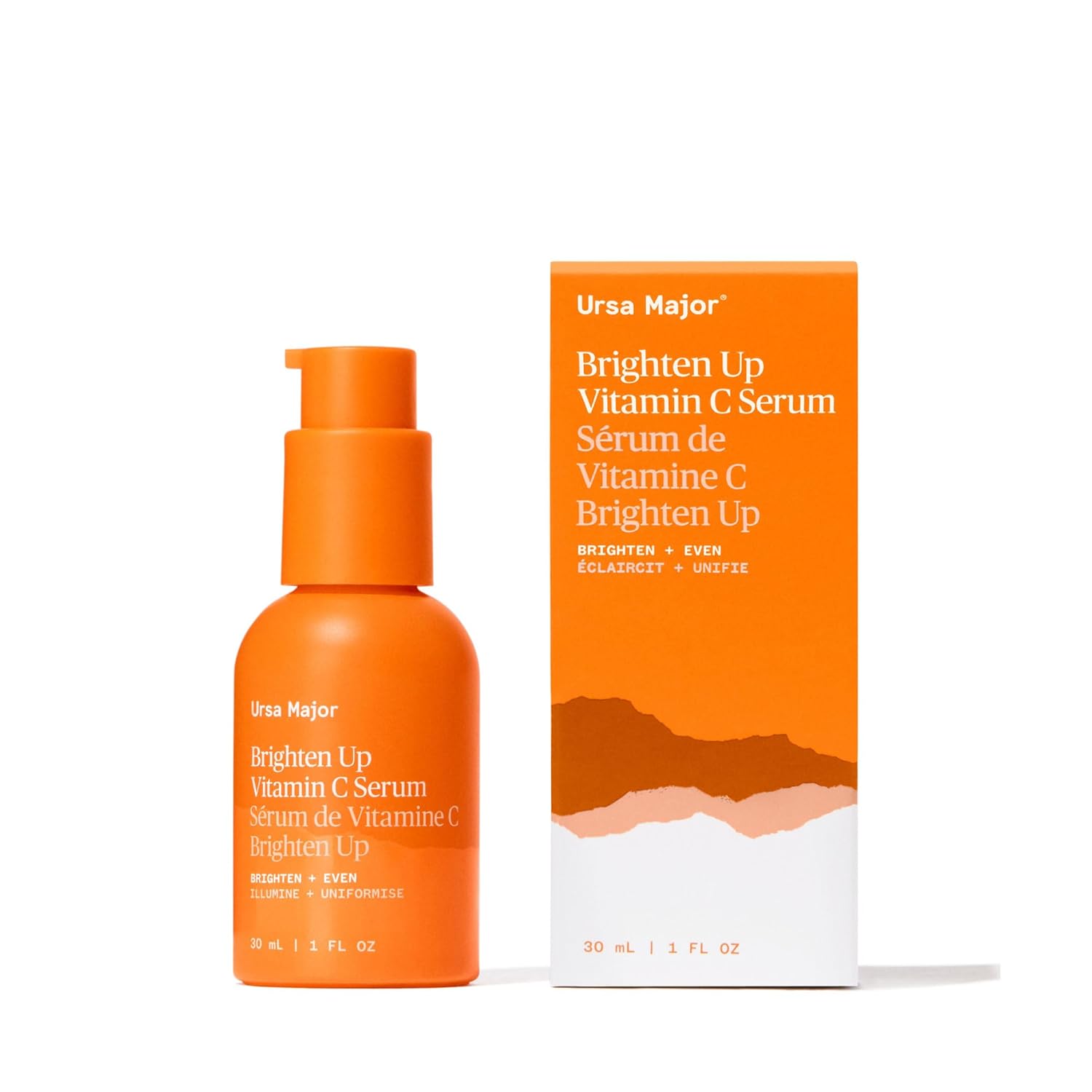The Best Skin Care Products for Acne typically include salicylic acid or benzoyl peroxide. Choose non-comedogenic formulas to prevent clogged pores.
Acne-prone skin requires careful attention and the right skincare arsenal to stay clear and healthy. Effective acne treatments must target existing breakouts while preventing new ones. Navigating the plethora of skincare options can be daunting, but identifying key ingredients is essential.
Salicylic acid excels at exfoliating and unclogging pores, while benzoyl peroxide is revered for its antibacterial properties and ability to reduce inflammation. Lightweight, oil-free moisturizers and gentle cleansers should form the basis of an acne-fighting routine. It’s also crucial to include a broad-spectrum sunscreen since some acne treatments can increase sun sensitivity. Opting for products specifically designed for acne-prone skin can make a significant difference in the appearance and health of your skin.

Credit: pixels.com
Understanding Different Types Of Acne
Exploring the best skin care products for acne starts with recognizing the distinct acne types that affect skin health. Tailored treatments address different acne conditions, enhancing the effectiveness of chosen skincare routines.
Navigating the complex world of skincare can be tricky, especially if acne is part of the equation. To effectively address acne concerns, it’s crucial to grasp the nuances of different acne types as this understanding can steer you toward products tailored to your specific condition.
Non-inflammatory Acne
Non-inflammatory acne encompasses the blemishes that are not characterized by swelling. This category includes:
- Blackheads (Open Comedones): These are pores that have become clogged with sebum and dead skin cells. The surface appears dark due to oxidation.
- Whiteheads (Closed Comedones): A continuation of clogged pores, whiteheads remain closed at the surface, creating small, flesh-colored bumps.
Choosing products with salicylic acid or retinoids can be particularly effective for treating non-inflammatory acne by promoting cell turnover and preventing clogged pores.
Inflammatory Acne
Inflammatory acne involves redness and swelling, a direct result of excess sebum, bacteria, and dead skin cells that penetrate deeper into the skin. Examples include:
- Papules: Small, red, raised bumps caused by infected hair follicles.
- Pustules: Similar to papules but filled with pus, exhibiting a white or yellow center.
- Nodules: These are larger and firmer than papules and pustules, buried deep within the skin.
- Cysts: The most severe form, cysts are large, pus-filled lesions that are painful and can cause scarring.
For inflammatory acne, products with benzoyl peroxide are beneficial as they kill the bacteria that can lead to this type of acne. Additionally, topical antibiotics and anti-inflammatory ingredients can help reduce swelling and redness.

Credit: pixels.com
To tailor your skincare routine for acne, look for products that address the specific type you’re battling. Keep in mind that gentle cleansing and regular exfoliation can keep pores clear and minimize the severity of breakouts. Moreover, integrating products that cater to the underlying causes and symptoms of different acne types will greatly enhance your ability to keep your skin clear and healthy.
Lifestyle Changes That Can Improve Acne
Exploring top-tier skin care products for acne can significantly enhance your complexion. Integrating dermatologist-recommended cleansers and treatments into your routine can be pivotal for clear skin. Alongside these products, adopting healthy dietary and exercise habits may also contribute to reducing breakouts.
Balance Your Diet
A clear complexion often starts with what’s on your plate. Making mindful eating choices can have a significant impact on your skin’s health:
- Stay hydrated: Drinking plenty of water helps to flush out toxins that could contribute to inflammation and blemishes.
- Limit dairy and sugar: Some studies suggest that dairy and high-glycemic foods can trigger acne. Opt for a balanced diet emphasizing whole foods.
- Incorporate omega-3s: Foods rich in omega-3 fatty acids, like salmon and flaxseed, can help manage inflammation and improve skin condition.
Stress Management
Chronic stress doesn’t just affect your mood—it can also exacerbate acne. Incorporating stress-reduction strategies into your daily routine is crucial for your skin’s wellbeing:
- Get enough sleep: Aim for 7-9 hours of quality sleep each night. Rest is vital for skin repair and regeneration.
- Practice relaxation techniques: Regular mindfulness practices, such as yoga and meditation, can lower stress levels and promote a clearer complexion.
Regular Exercise
Physical activity is a beneficial ally in your fight against acne. It nourishes skin cells and kick-starts healing by increasing blood flow, but remember to:
- Shower after a workout: This helps to wash away sweat and bacteria that can clog pores.
- Choose the right gear: Wear breathable, moisture-wicking fabrics to reduce irritation and prevent breakouts, especially for body acne.
Proper Skin Hygiene
Maintaining a consistent skin hygiene routine is paramount for managing acne, yet it’s not just about the products you use:
- Gentle cleansing: Over-washing or scrubbing too hard can irritate the skin and aggravate acne. Gentle cleansing twice a day can remove excess oil and dead skin cells.
- Non-comedogenic products: Look for this label to ensure your skincare and makeup won’t clog pores.
Protect Your Skin
Your barrier against the world, the skin, also needs shielding from external factors:
- Apply sunscreen: UV radiation can exacerbate acne marks. Choose non-comedogenic, oil-free sun protection suitable for acne-prone skin.
- Avoid touching your face: Your hands carry oils and dirt that can clog pores, so keep them away from your face.
Mind Your Medications
Sometimes the medications you take for other health issues might contribute to acne. Reviewing these can be a turning point:
- Talk to a healthcare provider: If you suspect that a medication is worsening your acne, consult a professional. They might suggest alternatives that are friendlier to your skin.
Environmental Considerations
Lastly, your surroundings can play a role in your skin’s health. Whether it’s air quality or cleanliness at home, environment matters:
- Clean your phone and pillowcases: Regularly disinfect your phone and wash pillowcases to minimize bacterial transfer to your face.
- Consider a humidifier: If you live in a dry climate, using a humidifier can keep your skin hydrated and less prone to flaking and irritation.
Empowering yourself with these lifestyle adjustments is pivotal in nurturing not just acne-free skin but also overall health. Stick with these habits, and your skin will thank you with a vibrant, more clear appearance.
The Best Acne Face Washes
Explore the top acne-fighting facial cleansers designed to tackle breakouts and blemishes. Our curated selection brings you effective skin care solutions, ensuring a clearer complexion.
Best Skin Care Products for Acne: A Complete Guide
Dealing with acne can often feel like an uphill battle, but the right face wash can be a game-changer for your skincare routine. The best acne face washes are formulated to gently cleanse the skin, remove excess oil, and target pesky breakouts without over-drying or irritating your complexion.
Let’s delve into some top products that could help transform your skincare regime.
Salicylic Acid Exfoliating Cleanser
This type of cleanser is a must-have for anyone struggling with oily and acne-prone skin:
- Deep Pore Cleansing: Salicylic acid is a beta-hydroxy acid that effectively penetrates deep into the pores to dissolve sebum and dead skin cells, reducing blockages and preventing future breakouts.
- Promotes Skin Cell Turnover: Regular use of a salicylic acid wash promotes exfoliation, leading to fresher, clearer skin over time.
Gentle Foaming Formulas
Not all powerful acne-fighting face washes have to leave your skin feeling stripped and tight. Gentle foaming formulas can do wonders:

Credit: pixels.com
- Soft Lather: These cleansers create a soft foam that lifts away impurities without harsh friction, maintaining your skin’s delicate balance.
- Soothing Ingredients: Look for versions infused with aloe vera or chamomile, which can provide a calming effect on inflamed or sensitive areas.
Benzoyl Peroxide For Stubborn Acne
For tackling stubborn acne, a benzoyl peroxide wash is often recommended:
- Kills Acne-Causing Bacteria: Benzoyl peroxide is known for its ability to kill bacteria associated with acne, which helps to reduce inflammation and clear up blemishes.
- Preventative Action: It also acts as a preventative measure, keeping the skin clear of future acne lesions by keeping bacterial growth at bay.
Natural Ingredient-based Washes
Nature often provides some of the most effective solutions for acne-prone skin:
- Tea Tree Oil: This natural antiseptic helps to purify the skin and is gentle enough for daily use.
- Green Tea Extract: Loaded with antioxidants, green tea extract helps to soothe the skin and can reduce the appearance of redness and irritation.
Navigating through the vast array of skincare products can be overwhelming, but finding the right acne face wash for your skin type can pave the way to a clearer, healthier-looking complexion. By focusing on formulations that target acne without compromising the skin’s natural moisture barrier, you are setting the stage for a balanced and sustainable skincare routine.
Topical Acne Treatments That Work
Discover the best skin care products for acne, designed to combat breakouts effectively. Our selection targets the root cause of pimples, ensuring clearer, healthier-looking skin with persistent use.
Struggling with acne can be a challenge for anyone looking for clear, healthy skin. The search for effective acne treatments often leads to a vast array of products, each promising relief from persistent breakouts. To ease this quest, the following options spotlight some of the most effective topical treatments proven to help control and reduce acne.
Salicylic Acid
One of the cornerstones of over-the-counter acne treatment is Salicylic Acid:
- Exfoliant properties: This beta hydroxy acid works by exfoliating the skin, helping to clear clogged pores that can lead to acne.
- Anti-inflammatory:
Salicylic acid offers anti-inflammatory effects, which can reduce the redness and swelling associated with breakouts.
Salicylic acid is suitable for people with oily and acne-prone skin, and various products offering different concentrations make it accessible for everyone.
Topical Retinoids
Retinoids are a class of powerful derivatives of Vitamin A. They provide several skin benefits:
- Promote cell turnover: By stimulating cell renewal, topical retinoids help prevent the formation of new acne lesions.
- Improve skin texture: Continued use can lead to smoother skin and a reduction in the appearance of acne scars.
Retinoids should be used with caution as they can make the skin sensitive to sunlight; thus, always apply them as part of your nighttime routine and follow up with sunscreen during the day.
Benzoyl Peroxide
Another popular treatment that dermatologists often recommend is Benzoyl Peroxide. Its dual-action approach to acne is what sets it apart:
- Kills bacteria: Benzoyl Peroxide is one of the few acne treatments capable of killing Propionibacterium acnes, the bacteria that can cause acne.
- Helps with oil control: It assists in managing excess oil production, which is a contributing factor to acne.
Available in various formulations, including creams, gels, and cleansers, Benzoyl Peroxide can be tailored to fit different skin types and severity levels of acne.
Tea Tree Oil
For those who favor natural remedies, Tea Tree Oil might prove to be an ally in the fight against pimples:
- Natural antiseptic: This oil naturally fights bacteria and reduces inflammation, which is essential for acne-prone skin.
- Well-tolerated: Most people can use products containing Tea Tree Oil without experiencing major side effects.
Tea Tree Oil should be used in diluted forms specifically designed for skincare to avoid irritation.
Niacinamide
Let’s shine a light on Niacinamide, a form of Vitamin B3 that benefits the skin in multiple ways:
- Regulates oil production: A valuable asset for those with oily skin, it helps keep the shine at bay.
- Soothes skin: Niacinamide has soothing properties that calm red and angry acne breakouts.
- Strengthens the skin barrier: It plays a key role in reinforcing the skin’s natural barrier, which can be compromised in acne-prone skin.
Niacinamide is generally well-tolerated and can be found in a variety of acne treatment products, making it easy to incorporate into your skincare regimen.
Remember, the most effective acne treatment varies from person to person. It’s always recommended to patch test new products and consult with a dermatologist to tailor a treatment plan that’s just right for you. With consistency and the right topical treatments, clearer skin can be an achievable goal.
Finding The Right Acne Skin Care Routine
Navigating the vast array of skin care products can be daunting for acne sufferers. Discovering effective, dermatologist-recommended options tailored for acne-prone skin is essential for a clear complexion.
Struggling with acne can often feel like a never-ending battle, leaving you navigating through a myriad of skin care products. But fear not, the journey to clearer skin can be simplified with a well-tailored acne skin care routine.
The Importance Of Tailored Treatment
Selecting the optimal products for acne-prone skin is pivotal. What works for one individual may not be effective for another. Acne varies widely, from occasional hormonal breakouts to chronic cystic conditions. This variability necessitates a personalized approach that targets your unique skin concerns.
Building Your Acne-fighting Arsenal
Before diving into the plethora of available products, let’s consider the essential elements every acne skin care kit should have:
- Cleanser: Choose a gentle, non-comedogenic cleanser that removes impurities without stripping your skin’s natural oils.
- Exfoliant: Look for products containing salicylic acid or glycolic acid to help unclog pores and reduce the appearance of acne.
- Moisturizer: Even acne-prone skin needs hydration. Opt for a lightweight, oil-free moisturizer to maintain your skin’s barrier.
- Treatment: Benzoyl peroxide and retinoids are praised for their blemish-banishing properties. Identifying which is best for you can be a game changer.
- Sunscreen: Protecting your skin from harmful UV rays is a must, even for acne-prone skin. Non-greasy, broad-spectrum formulas are ideal.
The Role Of Consistency And Patience
Rome wasn’t built in a day, and similarly, an effective acne routine requires patience and consistency. Results often take time to manifest, and consistency in application is key to seeing progress. Remember to introduce new products gradually and give each one ample time to work its magic.
Understanding Active Ingredients
When exploring acne treatment options, pay special attention to the active ingredients:
- Benzoyl Peroxide: This ingredient kills bacteria responsible for acne breakouts and helps to clear clogged pores.
- Salicylic Acid: It exfoliates the skin, reducing the number of acne blemishes by unclogging pores and allowing room for new skin growth.
- Retinoids: They promote cell turnover and prevent the plugging of hair follicles, which can both cause and aggravate acne.
Recognizing Irritation Signs
As you assemble your ideal routine, be vigilant for signs of irritation — like redness, peeling, or excessive dryness — that suggest a product may not be suitable for your skin. It’s important to listen to your skin’s responses and adjust your routine accordingly to prevent worsening your acne or causing further skin issues.
Embracing Lifestyle Factors
Remember, topical treatments are just one piece of the puzzle. A holistic approach to acne includes consideration of diet, stress levels, and sleep quality, which all play an integral role in skin health. Embrace a balanced lifestyle, and watch as your skin responds positively to the changes.
Crafting the right skin care routine for acne involves trial and error, a dash of patience, and a sprinkle of persistence. Prioritize active ingredients that have a proven track record, be it salicylic acid, benzoyl peroxide, or retinoids, and remember to listen to your skin.
With a little bit of knowledge and consistency, you can pave the way to a clearer, healthier complexion.
Frequently Asked Questions On Best Skin Care Products For Acne
What Are Top Ingredients For Acne-prone Skin?
Ingredients like salicylic acid, benzoyl peroxide, and retinoids are top performers for acne-prone skin. These components help to unclog pores, reduce inflammation, and speed up skin cell turnover, effectively preventing and treating breakouts.
How Do I Choose Acne Skin Care Products?
When choosing acne skin care products, look for non-comedogenic labels that won’t clog pores. Check for key active ingredients such as salicylic acid, benzoyl peroxide, or retinol. Also, consider skin type, whether oily, dry, or combination, and any skin sensitivities.
Can Moisturizers Help With Acne?
Yes, moisturizers can help with acne by maintaining skin hydration and barrier function. Opt for oil-free, non-comedogenic moisturizers that hydrate without clogging pores. Ingredients like hyaluronic acid and niacinamide are beneficial for acne-prone skin.
What Is The Best Acne Treatment For Sensitive Skin?
For sensitive skin with acne, gentle formulations with soothing ingredients like aloe vera and niacinamide are best. Avoid harsh exfoliants and opt for low concentrations of salicylic acid or benzoyl peroxide to prevent irritation while treating acne.
Conclusion
Navigating the sea of acne care products can be daunting. By focusing on key ingredients and formulations that target acne, you can transform your routine effectively. Remember, persistence and consistency with your chosen products are crucial for clearer skin. Start your journey to a blemish-free complexion today!
Reference Link – https://en.wikipedia.org/wiki/Natural_skin_care



